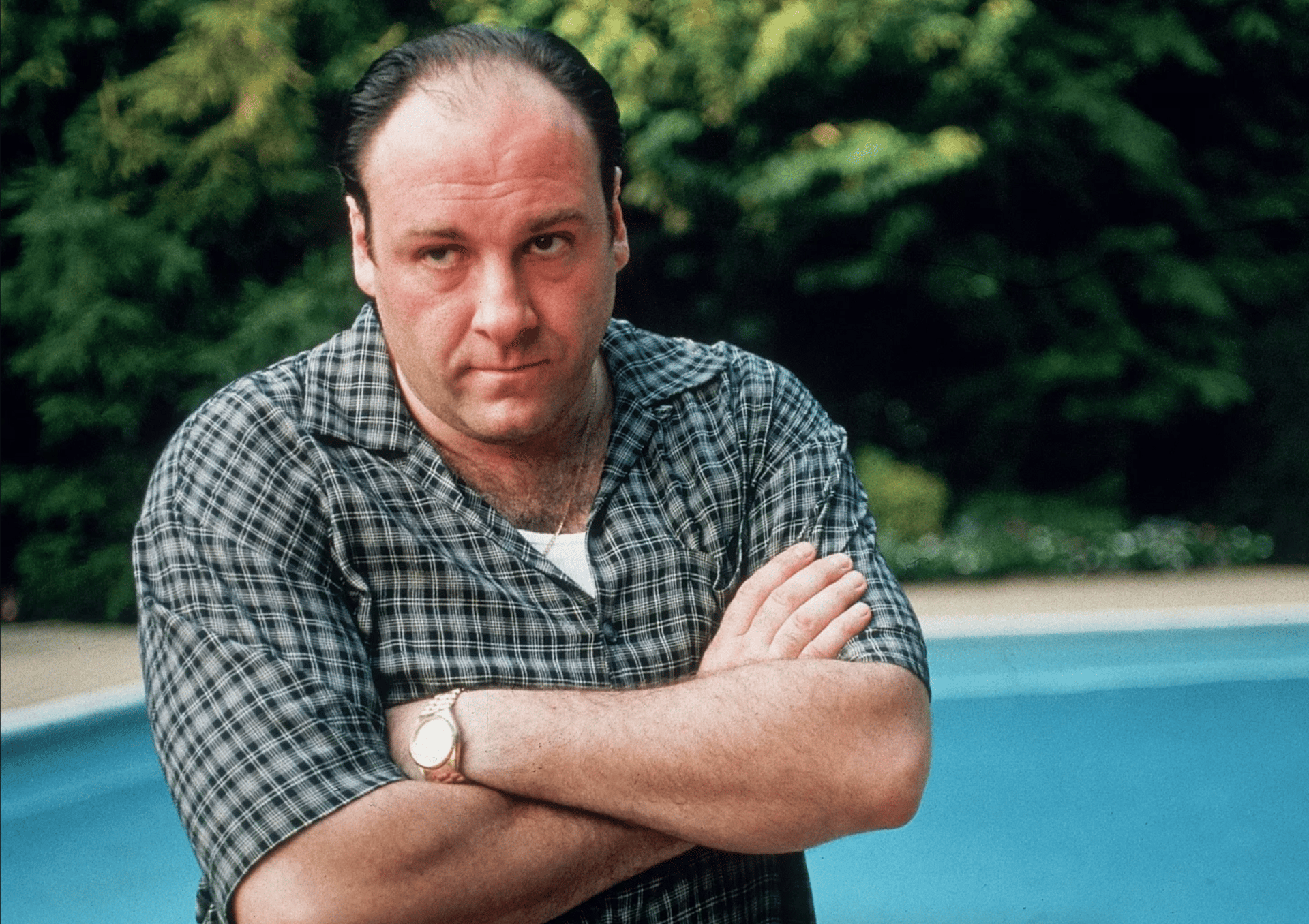I want to talk about the pilot script that sold to Lionsgate and get me staffed on a Paramount+ show.
Specifically I want to talk about one piece of almost incidental feedback I received and how it completely unlocked the script and changed the trajectory of the project - and by extension my career.
The pilot is about a guy who operates on the fringe of a criminal industry in New York. He’s a hustler, an opportunist, a liar…a TV trope that I’ve termed “premium dirtbag”. Basically boatload of distasteful character qualities, and yet we root for him regardless. Primarily because he’d be played by some extremely charismatic and well-loved actor - hence the “premium”.

Premium dirtbag #14372 - Tony Soprano: a truly hateful man we all can’t help but root for
I wrote the pilot - one of my favourite things I’ve ever written, and some of the most fun I’ve had writing a script. That should’ve been an alarm bell.
As a first port of call I sent it to my UK agent. I’m lucky in that she tends to be a big fan of my writing and a champion of my work. That can sometimes be a problem if you want tough love - her feedback tends to hover around “I really enjoyed it. Great work!” But in the great spectrum of problems you can have, this is one of the good ones.
She’s never claimed to be a script analyst. She reads my work as a reader. Takes it as it comes and gives her gut instinct on how it felt to her. No calculus. No theory. All vibes. I actually think there’s great value in this. Much worse if someone tries to give you detailed feedback when they have no real idea what they’re talking about.
With this particular script she had slightly more to say. She said “It’s great. It’s an easy read.” I always take this as a complement. Reading scripts should be easy. A good script flows, draws you in, makes the process of enjoying it effortless. But then she added “It’s almost…too easy?”
Huh. A script that’s too easy to read. That’s a head-scratcher. Had I finally become too good of a writer? I allowed myself to think so for a brief moment, then got real.
Too easy? I pushed her to elaborate. I can’t remember her exact words, but to paraphrase, she felt like my protagonist just sort of glided through the story.
That actually turned out to be an incredibly astute note - and a reminder as to why having readers who are just readers, and who don’t claim to be screenwriting experts, is crucial.
A development producer would’ve tried to diagnose each and every issue. But my agent had managed to highlight a consistent bug that ran through the whole script. I immediately read it back through the lens of this observation, and saw exactly what she was referring to.
In getting that initial delivery draft finished, I was primarily focused on two things
making the baroque and breakneck plot run as smoothly and as clearly as possible
nailing the distinct voices of the main characters
To achieve this I had inadvertently made a fundamental error in my scenework: my protagonist won every scene.
As in, he entered the scene with a goal, encountered conflict, but came out the other side having achieved his goal. I was pushing him through the plot, and making sure every other character capitulated to my goal of telling the story I had fixed in my head.

Premium Dirtbag #19643 - Everyone’s favourite drug-peddling murderer, Omar Little
So I ran an exercise. I went through every scene in the script, and workshopped a version where my protagonist lost every scene. He entered the scene, encountered conflict, and didn’t get what he wanted. Or something with his victory went terribly wrong. Or it came with a kicker that railroaded his plan.
Each new workshopped scene made it immediately into the script. I rewrote the whole thing with that one exercise. And it suddenly popped off the page in a way it hadn’t before. It wasn’t the easy breezy read it had been. It was more compelling, more tense, more real, funnier, more alive.
I sent it back to my agent. She was shocked by the extent of the rewrite. But agreed fully that I’d cracked it.
That draft landed a director, Temple Hill come on board to produce, we sold it to Lionsgate…we never actually took it to buyers - but that’s a story for another day. It landed me a job on a Paramount+ show, as well as dozens of high-intention meetings, and was the writing sample that landed me a new project with Sony. It’s been my main writing sample since the day I finished it. I still hold out hope for seeing it on screen someday.
And all because I turned my protagonist from a winner to a loser.
Writing takes a great deal of mental stamina. It’s incredibly tempting to give your characters easy wins, just as you would want them in life. A loss creates a problem that needs to be solved. Creating a problem for your characters is really creating a problem for yourself. And we don’t like problems. They’re exhausting.
But drama is problems. That’s all it is, one problem after another until finally, eventually, you earn one big win. Deep into my career, I relearned this fundamental lesson. Winning is generally boring. It shuts things down. Having your protagonist lose and lose and lose again…that’s entertainment.
Do you have a screenwriting question? Drop me an email and I’ll answer it in this very newsletter.
